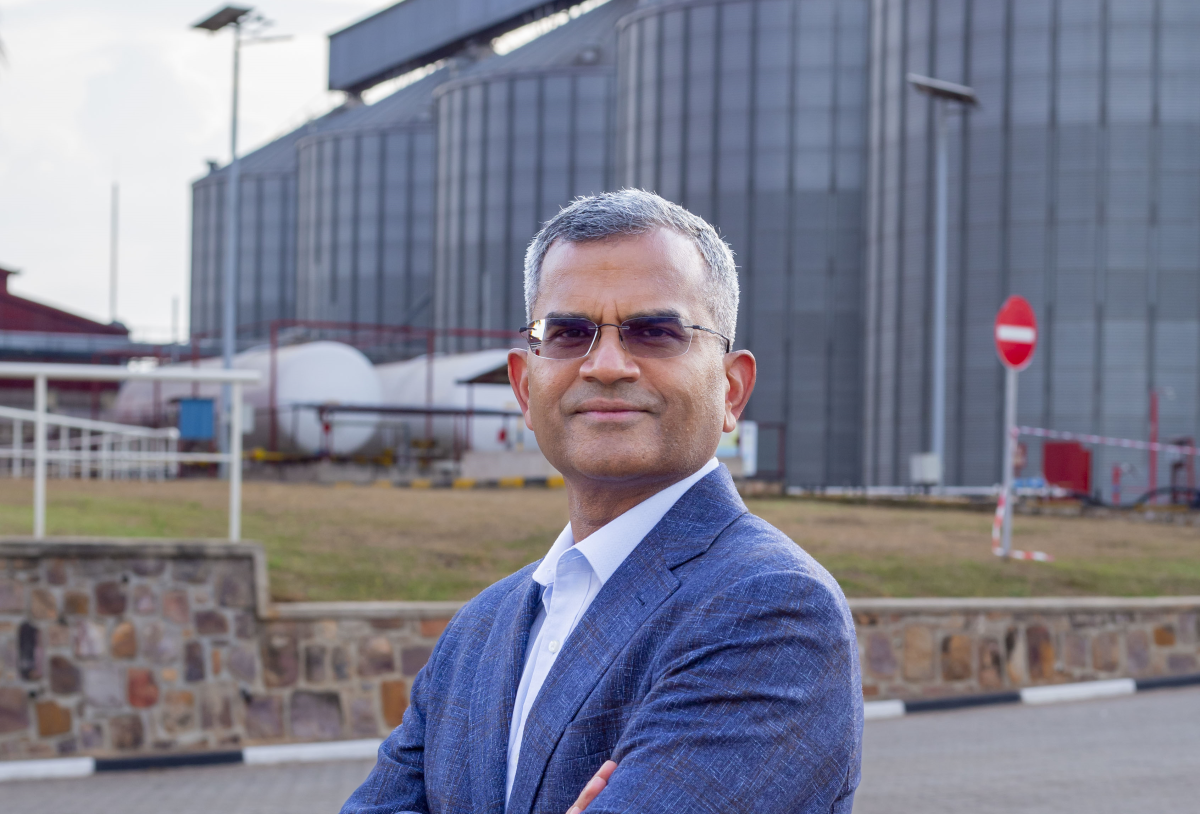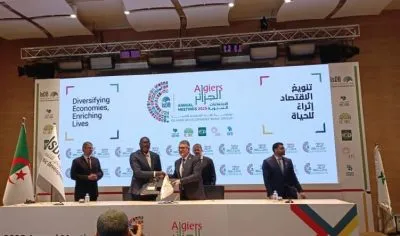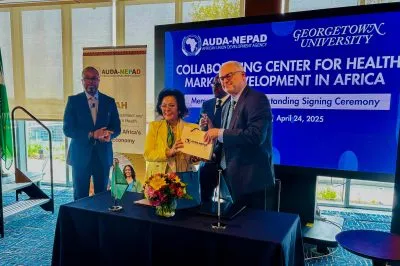This article was produced with the support of Africa Improved Foods
Africa Improved Foods (AIF) is a proudly African social enterprise, with its roots firmly grounded in Rwanda. With the mission to expand its impact across the continent with scalable and sustainable solutions, its goal is to continue nourishing Africa, one meal at a time.
Since its inception in December 2016, Africa Improved Foods has been helping people maximise their potential through improved nutrition with affordable, high quality and locally sourced foods. Through this local production of highly nutritious foods, it is successfully reducing poverty, creating jobs, and tackling malnutrition head on.
Africa Improved Foods’ unique public-private partnerships approach to tackling malnutrition enable it to extend its reach throughout the value chain. It positively impacts local raw materials sourcing, local and regional purchasing, employment, economic development as well as the production of high quality, nutritious foods. All this culminates in its ability to feed more than 1.5m children every day, thus reducing malnutrition and strengthening food safety.
Africa Improved Foods is an African food champion with an impact mission at its core.
How great is the overall challenge that Africa Improved Foods is addressing through improving nutritional foods and thus food standards in Africa?
Africa is projected to have the world’s fastest growing population, with almost a quarter of the global population projected to live in Africa by 2050.
Currently, one fifth of the African population of some 278m people is undernourished. Some 55m of this population are children under the age of five years old.
Severe and chronic malnutrition, especially during a child’s early years, often results in irreversible mental and physical damage, including the stunting of growth.
AIF’s mission is to impact more than 10m lives and livelihoods daily by the end of 2028, through scaling the reach of our safe, nutritious and affordable food across the continent.
In what way do partnerships help the company in its quest to bring nutritious foods to the people of Africa?
At AIF we believe in the power of collaboration to create positive change, and our partnerships enable us to extend the reach of our impact.
We are a public-private partnership involving dsm-firmenich, the Government of Rwanda, IFC and FMO. AIF provides a scalable and sustainable solution to malnutrition via local production of highly nutritious foods. Some $65 milion has been invested in Rwanda already in best-in-class technology.
Can you describe some of the innovative technology that Africa Improved Foods has deployed to improve nutrition for the many?
AIF has implemented a model to source raw material locally where possible, which enables smallholder farmers to sell their maize on the cob, immediately after harvest. This in turn decreases harvest losses and improves overall quality.
Our FSSC 22000 quality system safeguards our pledge that our products comply with the highest quality and hygiene standards, and we are the only company in the world whose quality certification is accepted by institutional partners without counter auditing.
Can you outline some of the areas of greatest importance to address that will benefit as wide a demographic as possible? For example, through Shisha Kibondo Infants and Mothers.
AIF’s unique public-private partnership’s approach to tackling malnutrition enables us to extend our reach throughout the value chain. We positively impact local raw materials sourcing, local and regional purchasing, employment, economic development as well as the production of high-quality, nutritious foods. All this culminates in our ability to feed more than 1.5m children per day, both reducing malnutrition and strengthening food safety.
AIF’s product range encompasses relief products and commercial products. The relief products are for institutional buyers such as the Government of Rwanda and the World Food Programme (WFP) for use in public distribution programmes for populations in vulnerable health, social, environmental and financial situations.
For instance, in partnership with the Government of Rwanda, AIF distributes its Shisha Kibondo range, a nutritious complementary porridge, free-of-charge to Rwandan mothers and infants.
AIF is one of two global manufacturers, and the sole producer in Africa, of the Super Cereal Plus series, a WFP recipe of nutritious cereal combination made from locally sourced grains. WFP distributes this to vulnerable communities in Kenya, Uganda, Somalia, South Sudan, and Ethiopia.
Large areas of Africa have potential to yield nutritious crops yet are under-resourced when it comes to taking advantage of that land’s agricultural opportunities. Can you illustrate what Africa Improved Foods has been doing to improve the cultivation of nutritious foods?
At AIF, we ensure responsible sourcing of our raw materials, sourcing produce locally and training and strengthening the farmers and registered cooperatives that we buy from. We have grown women participation to 45% and we are now building our farmers’ capacities to be able to deliver aflatoxin-free maize and other materials that equally meet quality parameters for safe and nutritious foods for our consumers. While doing this, we pay attention to tracking and addressing potential social and environmental issues in the supply chain.
We source locally from around 90,000 smallholders, directly improving rural lives and livelihoods.
Finally, do you have any additional statistics that can present a picture of the scale of the challenge and the strides that you have made so far?
AIF today processes around 65,000 tonnes of maize and soya per year and it is now the largest grain buyer in Rwanda. From an economic perspective, AIF has created $1bn in net incremental value added across the East Africa region and has created more than 500 direct jobs. Additionally, AIF sources from a total of 90,000 smallholder farmers and hence directly improves rural lives and livelihoods.
Following our interventions, according to Clinton Health Initiative research and the University of Chicago, we have contributed to double digit reduction in stunting rates from 47% in 2017 to 35% in 2021, anemia rates from 35% in 2017 to 9% in 2021, and iron deficiency from 34% in 2017 to 22% in 2021.
In addition, we recognise the importance of a triple bottom line that addresses not only our economic performance, but environmental and social impact as well. We have adopted an innovative approach of multi-capital valuation and accounting, which allows us to embed natural, social, and human capital impacts and dependencies into our business strategy and decision-making processes. Quantifying the value of our environmental and social impacts in monetary terms helps us communicate our sustainability performance with both internal and external stakeholders in a common business language.
We focus especially on natural, social and human capital, which includes considerations such as our use of natural resources like water and land, or human resource practices. We then integrate natural, social and human capital, translating the data into three elements: Profit and Loss; Balance Sheet; and the Risk and Opportunity Statement. While these are not assessed in traditional accounting and reporting frameworks, accounting for non-financial capital allows us to make decisions that ultimately help us build a more resilient business.
 Sign in with Google
Sign in with Google 



